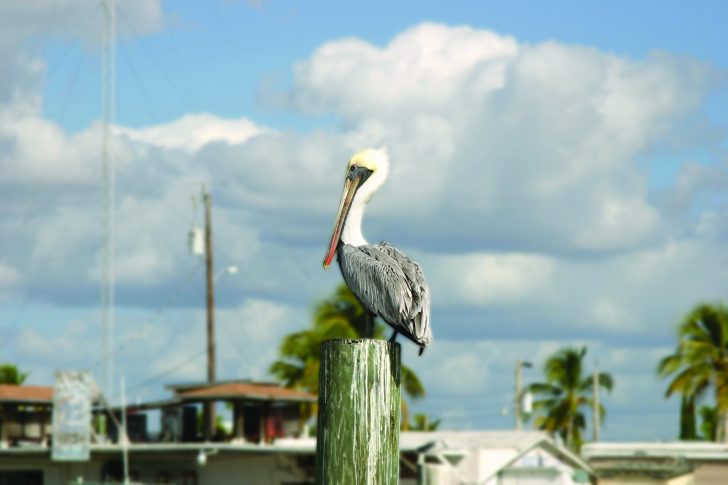
Brown Pelicans are large seabirds that can live in fresh or saltwater environments. They are brown and white with short legs and an impressive wingspan of nearly seven feet. They are easily recognized by their long, narrow bill and large pouch they use to catch fish.
Using their keen eyesight to spot prey from the air, Brown Pelicans dive right in, hitting the water with a splash. Their preferred food? Small, schooling fish such as sardines.
While they are no longer a threatened species in Florida, Brown Pelicans remain part of the Imperiled Species Management Plan as they continue to face dire threats from loss of wetlands, pollution, nest-site disturbance, and entanglement in fishing line.
Brown Pelicans, especially juveniles that may not have mastered the skill of plunge-diving, will readily accept handouts from boats returning to the dock and sometimes hang around fishing piers and bridges where they hope to make an “easy” meal of someone’s bait. But, by associating food with humans, birds put themselves at risk of becoming entangled in fishing gear.
Audubon Florida has initiated a research project to investigate how hooking and entanglement are impacting Brown Pelican populations in Southwest Florida, including Tampa Bay. Because so many pelicans are rescued on or near the Sunshine Skyway Bridge, Audubon biologists are applying metal bands to the legs of pelicans healthy enough for release. The goal of this project is to understand how pelicans are interacting with recreational fisheries, what impact that is having on their population, and what steps we can take to reduce negative impacts on Brown Pelicans.
What can you do to help?
- If you spot a Brown Pelican with an ORANGE leg band, report it to fl.audubon.org/pelican-study.
- Reel in caught birds, cut the barb off the hook, and back the hook out.
- Remove and properly dispose of all used/unwanted fishing line and gear.
- Don’t feed wild seabirds, including Brown Pelicans.
